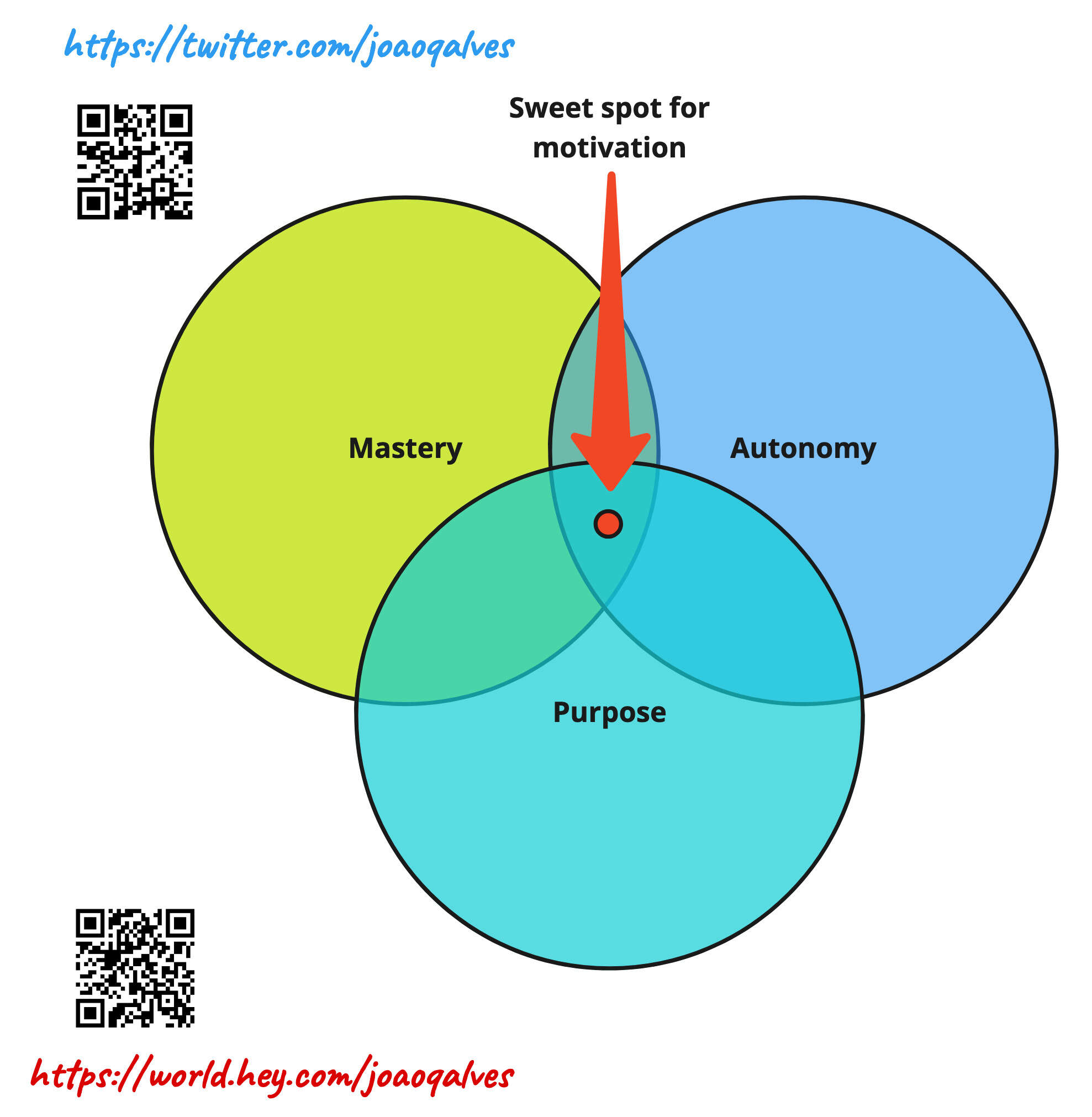In his book "Drive: The Surprising Truth About What Motivates Us," Daniel Pink talks about "motivation 3.0", which comes after basic needs are covered ("motivation 1.0") and carrots and sticks ("motivation 2.0"). There are three main components in Pink's theory:
- Autonomy to be in control of our destiny — how do we work? Is there a dress code? Strict code guidelines, etc. — without the need to conform to inflexible rules.
- Mastery that drives a desire for self-improvement, leveraging a growth mindset, and seeing our potential as unlimited.
- Purpose is people's intrinsic desire to do things of something bigger than themselves. For instance, "making the World a better place" instead of maximizing profits.
These three terms changed how I feel about motivation within my teams. Today, I want to talk about purpose. Generating and cultivating it is crucial in the current times. Most likely, if you don't work at a FAANG company, you won't have the same financial leverage to recruit and retain talent within the organization. So, leadership teams that are purpose-first have an edge.
Cultivating purpose
As the purpose is a memorable description of why your team or organization exists, I re-use the company one on the end-customer we're serving (e.g., buyers, sellers, riders, drivers). An example I often use in one-on-ones or talks with different team members is:
We're not here to build the most beautiful cathedral or Kubernetes clusters. People that come to our marketplaces care about their next car, home, or job. It's usually a big step for them. So we need to be there for them. People searching for a flat and getting an HTTP 500 error is what keeps me waking up at night, not the next technology-du-jour version. We should not be in love with our technology. We must be in love with our users. If we don't, our competitors will.
So I take advantage of different moments — one-on-ones, when I share department or company-wide news, when there's a Q&A, when there's an incident or when I see that we're not being sharp enough dealing with our users — to send these messages. Hence, it becomes business as usual for the team.
From a joke to a habit
Now and then, I used to write a (somewhat) long post to my team, giving a high-level overview of what's on the table, the following challenges ahead, and sharing data points on our Key Performance Indicators (KPIs) or recent accomplishments. These posts were known as "bricks of text."
As I had set up a weekly reminder for team members to answer Officevibe's survey, I saw it as an opportunity to start a new habit: a weekly post — usually on Fridays — with a simple format: What's going well? What do I see we can improve? What went wrong? Then, I took the opportunity to share some kudos that different team members received during that week, fostering recognition.
If you're an Engineering Manager or Tech Lead interested in doing something similar in your teams, I've created a template to write your own "Bricks of Love" and some tips and tricks for pairing it with Slack. I've received feedback from the team that they appreciate this overview.
Habits generate culture
When changing the updates to a weekly cadence and sharing team-wide recognition, I noticed a few patterns emerging:
- People were more engaged with the post. Some were even waiting for it.
- Recognition loops became closer, and it reminded people of using the company's official tool to give me feedback and to acknowledge their peers' work.
- Some folks started to give more, better qualitative feedback in Officevibe. It matters because it's, by default, anonymous. It's a different way to gather direct input from the team. Qualitative feedback often explains quantitative one, so analyzing data without the why is much more difficult.
- I gained an instant weekly report that I could share with my peers and managers whenever needed.
This post described another way I found to cultivate purpose around the team and organization: sharing weekly written updates with my team. We call them "Bricks of Love" as part of a previous joke. What are your tricks?
— João
